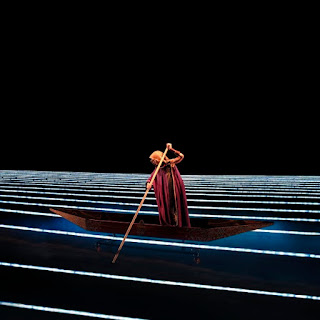Film: Moonlight, The Birth of a Nation and the US African-American Experience
After some years in which Spike Lee's realism-comedies were about the only mainstream films by black directors, there has been a recent bounty of such films, all with thoughtful, individual takes: Precious (2009), Straight Outta Compton (2015), and now work by two young (37 year old) directors: Nate Parker's The Birth of a Nation and Barry Jenkins' Moonlight . In very different ways, these films join Toni Morrisons's novel Beloved as helping me to have a window into our persistent troubles with race in this country, and the seeming futility of solutions offered by both the political right and left. The Birth of a Nation's excellent title gives a hint of Parker's intent--he sees Nat Turner's failed 1831 slave rebellion as a metaphorical beginning of an American black consciousness, just as D.W. Griffith saw the Klan as the driver of a new Christian white triumphant South in 1915. Much more than the safer Twelve Years a Slave , this new film immerses you

